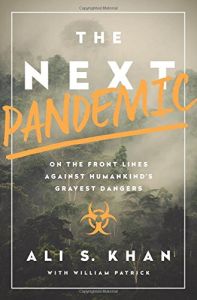Join getAbstract to access the summary!

Join getAbstract to access the summary!
Ali S. Khan
The Next Pandemic
On the Front Lines Against Humankind’s Gravest Dangers
Public Affairs, 2016
What's inside?
Let an epidemiologist educate, amuse and scare you – about SARS, Ebola, flu, anthrax, and more.
Recommendation
Virologist and epidemiologist Ali S. Khan takes readers on an eye-opening, entertaining journey through his many assignments and adventures as a “disease detective” for the US Centers for Disease Control and Prevention. Writing with business writer William Patrick, Khan explains that plagues may capture the headlines for weeks or even months, but when they’re over, people tend to forget about them – until the next outbreak. He illustrates the importance of managing disease disasters and makes sensible recommendations for prudent approaches to future epidemics. While never giving medical advice, getAbstract recommends Khan’s engaging read to anyone interested in epidemics, bureaucratic efficiency and social justice.
Summary
About the Author
Ali S. Khan, MD served the US Centers for Disease Control and Prevention for more than two decades, specializing in infectious disease, biological terrorism and issues of health security. William Patrick is a book doctor, editor and ghostwriter. He is the co-author of Loneliness: Human Nature and the Need for Social Connection and two novels about bioterrorism.


















Comment on this summary